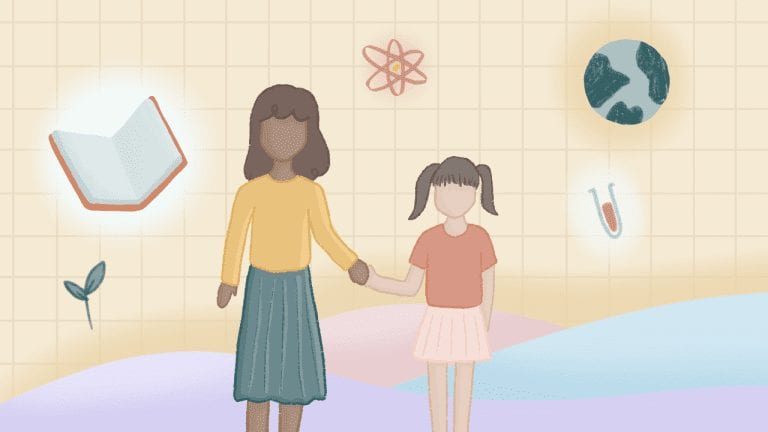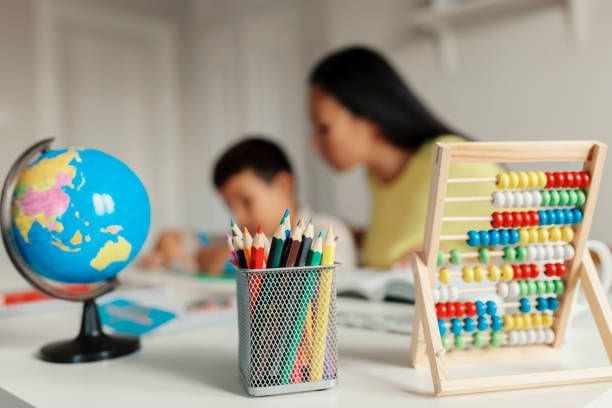
8 Tips in Developing Your Child’s Organizational Skills

There are many basic life skills that parents have to teach their children, preferably at a young age so they can develop those skills as they grow older. One of these basic life skills is organizational skills. Organizational skills will help your child with their academics in terms of school schedules, extracurriculars, and such. Aside from that, it will also help them in the future when they have grown and will be entering their adult life and start working.
Being a good organizer is a positive trait that will be beneficial for your child in the present as well as in the future. It will make their tasks easier for them and they will not suffer from bouts of stress and terror because they have too much work to do and they don’t know when to start. It will allow them to see and do their tasks without being terribly overwhelmed by them. With that being said, how can parents help their children to become organized and develop their organizational skills and maintain them? We have a quick guide for parents out there asking these questions.
1. Organizing without nagging
Nagging isn’t really something everyone welcomes. It can get annoying very quickly. So, in teaching your child to stay organized, refrain from nagging them if they are being disorganized or running without a clear plan in mind. They are still children and they will need time to adjust and play around with their surroundings. As such, because they are still young, they may not immediately understand the importance of doing things a certain way. If a parent constantly nags, instead of the child seeing the good in organizing, they may start to see it as burdensome as it equals to their parents’ nagging.
That being said, parents shouldn’t also let their children run free and become disorganized. Instead, encourage them to be organized by using positive prompts that will help them see and understand they are still respected and appreciated. Even if they are still young, children still deserve these things. If you ask them to do a specific task, don’t speak to them harshly. Instead, request it nicely and don’t forget to thank them afterward. Children will be more inclined to do tasks with positive reinforcements and in return, they will keep doing a good job and appreciate their parents for teaching them. As such, they will also become more responsible with their tasks and appreciate what is being taught to them.
2. Create a study space for them
Aside from helping your child with their academics and studying, a study space will also help them in encouraging the good habit of organizing. Since the area is dedicated to studying, they will have to keep their work there and thus, will have to be free of distractions. Teach them that keeping their study space organized will help them in getting their tasks done faster and easier. Let them organize their things in the area, from their pens to art supplies, and let them be in charge of the tidiness as well. Help them understand the importance of keeping their space organized with all the materials they need at an arm’s reach. This will also help them with their study habits and in doing their homework.

3. Color coding subjects
Another tip to organizing class and study materials is to teach them to color-code each subject. Let your child assign a color to each subject and buy the necessary supplies to achieve that. If your child decides Math is going to be a red color and Science is orange, you can help them by buying notebooks or folders in those colors. By assigning a color to a specific subject, organizing the materials for them will also be easier. They will know immediately what color to look for when they need to put a new study material in or if they want to review something. This way, study materials will not become a huge bundle or unorganized mess. As such, it will also be easier for them to study and pick the materials they need.
4. Giving them organizational chores
You can also teach and develop your child’s organizational skills when asking them to do chores around the house that revolves around organizing, sorting, and arranging things in order. These tasks can go from as simple as helping you organize the pantry after buying groceries or sorting the shoe rack. Children can even be taught to help with folding and arranging their own clothes as part of these activities. Aside from helping develop their organizational skills, these activities will also help instill responsibility in your child.
If you have a younger child or they are not interested in those tasks, there are other things they can do such as sorting out their toy basket or closet. They can even help with making the shopping list with you. There is an endless list of household chores that will help with organizational skills and simple tasks can even help them develop other skills, especially when they are only starting their academic journey.
5. Teach them to create checklists
Some people feel more organized when they put down their tasks on paper. Checklists are a great way to help your child become organized and this method will help them a lot in the future. Aside from organizational skills, checklists are also a great way to help with time management skills as the child can see the tasks they need to accomplish and thus, can also allot their time on those certain tasks. Parents can start by giving them a short checklist of what they need to do before they sleep or when they wake up. You can also include a checklist of the things they need for school inside their bag or when they are going on a trip. Once they are used to these checklists, you can then encourage them to create their own for different activities or tasks they need to accomplish.
6. Get them a planner
Aside from checklists, planners are also a great tool for keeping organized and developing organizational skills. There are children-friendly versions of the planner most adults are accustomed to. Some of these planners are also customizable, which will help them get things personalized according to their interests. A planner will help them to understand how they should sort out their time as well as keep track of their different activities for each date and task. Help them understand the importance and benefits of keeping one.
Using a planner may work on the first few days but this doesn’t guarantee that the child will continue on with the task of keeping one. A good way to see if they are following their planner and still updating it is to check with them and ask what they have done for the day. Aside from this, parents can also reward their children when they have successfully completed a task and will become even more encouraged to use the planner consistently.
7. Establish a homework routine
A routine will also help your child be on top of things and help develop their organizational skills. As parents, you should take the time to help your child settle in with a routine, especially more so when they start going to school. Homework is a part of education that students will experience and setting a homework schedule will help in setting a routine for their day-to-day.
In this schedule, they can pause all the other activities they have and focus their time and effort on their schoolwork during the allotted time. When setting their routine to them first, keep a close eye on them and encourage them to stick to their homework schedule even when they don’t have any pending homework. Instead, this can also be used as a time for them to review and revise their notes or do an advance reading for the next lesson in class. Whatever the case may be, make sure they are sticking to the routine and the flow of it will come naturally to them in time to come.

8. Encourage a collecting hobby
If your child has a certain interest in a toy or book, why not encourage them to pursue it? They can turn their interest into a hobby and start collecting those certain types of books or toys. This can also be a good way for them to learn how to organize and maintain their collection. Collectors see their collections as precious treasures and your child will learn to arrange and clean their collections. Aside from forming a hobby, they can also develop an interest in collecting more things of value that may be worth a lot in the future. However, make sure that your child also has sufficient space when they are keeping a collection so that they may be inspired to continue with the hobby.
Conclusion
Teaching a child organizational skills can be a very tedious job. They are still children and may not understand the importance of it immediately. But, once your child gets used to it and picks up the rhythm of being organized, they are on the right path to using their skills to their advantage. Eventually, they will develop and maintain it as a habit and can very well help them in the future.

Carelle
Carelle is a teacher who has been through the ups and downs of the teacher and learner life. She wishes for every learner to gain educational satisfaction that will help embody the people they want to be in the future.
Tell Carelle Below What You Think About Her Post!

About FamilyTutor!
FamilyTutor is an established home tuition agency in Singapore! We match suitable home tutors for our clients not just to improve the students' academic grades, but also to build a strong rapport and meaningful relationship with the students and even the their whole family. FamilyTutor put every student in good hands!
If you need an excellent home tutor, feel free to call/WhatsApp us at +65 8777-2168! Our matching service is free!
Related Posts!
Follow Us On Facebook!
Our Service!
- Home Tuition in Singapore
- Home Tutor in Singapore
- Home Tuition Rates in Singapore
- Preschool Home Tuition
- Primary School Home Tuition
- PSLE Home Tuition
- Secondary School Home Tuition
- ITE Home Tuition
- N Level Home Tuition
- JC Home Tuition
- A Level Home Tuition
- Polytechnic Home Tuition
- University Home Tuition
- A-Math Home Tuition
- Biology Home Tuition
- Chemistry Home Tuition
- Chinese Home Tuition
- Economics Home Tuition
- English Home Tuition
- Geography Home Tuition
- H2 Chemistry Home Tuition
- Higher Chinese Home Tuition
- Hindi Home Tuition
- History Home Tuition
- IB Chemistry Home Tuition
- IP Chemistry Home Tuition
- IP Math Home Tuition
- IP Home Tuition
- JC Chemistry Home Tuition
- Literature Home Tuition
- Malay Home Tuition
- Math Home Tuition
- O Level Chemistry Home Tuition
- O Level Math Home Tuition
- O Level Physics Home Tuition
- Online Home Tuition
- Physics Home Tuition
- POA Home Tuition
- Science Home Tuition
- Tamil Home Tuition
Education Levels
National Exams
Math & Science Subjects
Language Subjects
Japanese Tuition
Korean Tuition
German Tuition
Humanities Subjects
Social Studies
Chinese Literature Tuition
About Us
FamilyTutor is an established and the people’s favourite home tuition agency in Singapore! We match a suitable tutor for you not just to improve the student’s grade, but also to build a good rapport and meaningful relationship with the student and even with the student’s whole family! With FamilyTutor, every Singaporean son & daughter is in good hands.
Contact Us
- 8777 2168
- 8777 2168
- Mon-Sun 9am-10pm (Including PH)
- contactus@familytutor.sg
- 17 Petir Road Singapore 678278



